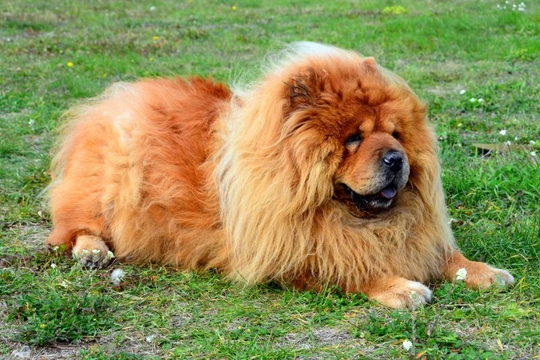
Non-inflammatory Hereditary Myotonia in Dogs
Non-inflammatory hereditary myotonia in dogs is a disorder that negatively impacts how their muscles move and contract more especially when dogs are walking or on the move. Although the condition is known to be a hereditary disorder, dogs can also acquire the condition when they are older should they have ingested some kind of herbicide. Studies have established that some breeds are more predisposed to inheriting non-inflammatory hereditary myotonia than others which is worth knowing about when sharing a home with a dog that's known to be more at risk.
Breeds Most at Risk
Studies have established that the following breeds appear to be more are most at risk of inheriting non-inflammatory hereditary myotonia:
- Chow Chow
- Miniature Schnauzer
Symptoms to Watch Out For
When dogs develop the condition, there are certain signs of there being something wrong with them to watch out for which could include the following:
- A change in their voice
- Stiffness in their muscles
- Difficulty breathing
- Difficulty getting up and moving around
- Difficulty swallowing which is a condition known as dysphagia
- Bringing up food after eating
- Tongue hanging out of mouth
Sometimes a dog's symptoms can improve after they have been out for a walk, but they can also get worse when the weather is colder.
The Causes
As previously mentioned, non-inflammatory hereditary myotonia is a hereditary disorder although sometimes a dog can acquire the condition if they come into contact and ingest any herbicides.
Diagnosing the Condition
A vet would need to have a dog's full medical history and be told how the onset of the symptoms first manifested themselves. The vet would thoroughly examine a dog suspected of suffering from the condition and would typically recommend carrying out the following tests which would help confirm a diagnosis:
- A biochemistry profile
- A urinalysis
- A complete blood count
- Test creatine kinase enzyme levels
When vets examine a dog suspected of suffering from the condition, they usually tap the dog's tongue when they are awake and then again when they are under a general anaesthetic which produces a dimpling on the surface of the tongue and this in turn helps confirm a diagnosis.
Treatment Options
Unfortunately, there are no specific treatments for the disorder. However, with the advancement of modern veterinary medicines, there are certain drugs that can help manage muscle stiffness and vomiting which are some of the symptoms associated with non-inflammatory hereditary myotonia. It is worth noting that these drugs would not change a dog’s strange gait which they usually develop when suffering from the condition.
Testing for Non-Inflammatory Hereditary Myotonia
Fortunately, there is a DNA test available for breeds known to be more predisposed to carrying the damaging genes that can be passed on to offspring. The test not only establishes whether a dog is affected by the disorder, but also if they are carriers which means they should not be used in a breeding programme.
Living with a Dog with the Condition
Dogs suffering from the condition should be prevented from doing any sort of strenous exercise which would just make things worse. With this said, the prognosis is never very good for dogs when they have been diagnosed as suffering from non-inflammatory hereditary mytonia and many succumb to the symptoms associated with the disorder.



